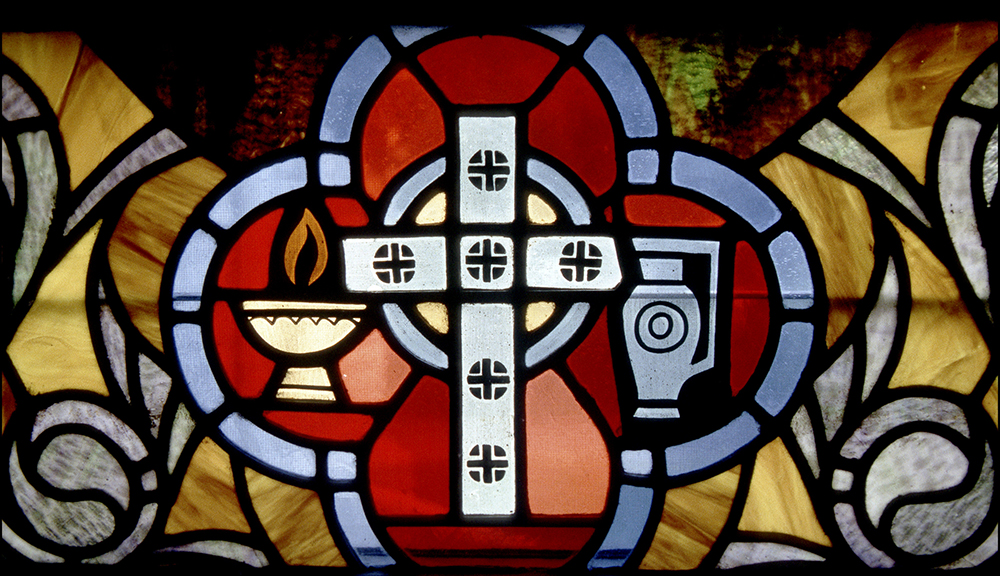A friend who has struggled all his life with weight issues recently showed up nearly 80 pounds lighter and was glowing.
People could not stop commenting on the radiance of his face, which they attributed solely to his decreased girth, but when asked about his diet, my friend would quickly change the subject. Privately, he related to me the secret of his dramatic weight loss: “I got anointed,” he said. “I needed to be healed of the sin that was driving me to gluttony.” He meant the prison of concupiscence — the sin of serving cravings and instincts of the flesh, over the promptings of our better angels.
I was instantly tickled by his news, but also moderately scandalized. What amused me were visions of Oprah Winfrey gassing on about “anointing your way to good health” and late-night television ads hawking “New Bless and Smear! Be Saved and Svelte After One Anointing, Guaranteed!”
What scandalized me, because eventually even I can come to my senses, was the same thing: a recognition of the insta-levity my friend’s actions might inspire, and how that might reflect poorly on a sacrament of such powerful healing. I suddenly understood his polite refusal to discuss his “diet” among company, and interiorly a finger-wagging voice was hectoring me toward judgment, telling me that the use of a sacrament to address something as vanity serving as one’s weight was a frivolous abuse of Christ-gifted grace.
And yet, that inner voice could not quite convince me that my friend had been flighty, or shallow, in pursuing the sacrament. Very familiar with how seriously he lived his faith, I knew that my friend’s anointing was about more than mere weight loss, or the balance of earthly scales; it was — it would have to be — a desperately sought-out last rite for a soul who, in the midst of a grave spiritual examination, had identified the source of his crushing illness. His sinful surrender to concupiscence was killing him and a turning — a conversion — would be necessary if he was to continue to live, and work, and love.
Far from being a frivolity, his seeking out of the sacrament was, in fact, an act of deep humility; it was a supplication for healing over his entire life — another surrender, this time of self. It was a turning over to God the safe havens of anger and judgment into which he had withdrawn himself for too long, and a plea for deliverance from the bitter, unhealthy lashing out that was keeping him, and those he loved, entrapped in a hellish and unhappy place.
His weight loss was actually a side effect of the power of the anointing, a physical manifestation of the spiritual healing that came about when he set his entire body, his livelihood and his very mind and heart before the Lord and said, “If you will, you can heal me.”
And Jesus, praise Him always, said, “I do will it; be healed.” Yes, he was thinner, but the remarkable and lasting joy that radiated from my friend’s countenance had less to do with his shrunken cheeks and more to do with the settling of his formerly stormy spirit. During a moment of sacramental grace, his heart had been gentled; in his deep, pleading agony there had been bestowed upon him a peace beyond all understanding. He was like a man who, having endured decades in a torturous chamber, was released into sunlight — his every wound cleansed and treated with a balm of spicy, scented oil. “From the moment I was anointed,” he told me, “everything became different. I was set free.” Pondering the miraculous change in my friend — a healing so comprehensive no ad slogan could contain it — I wondered if an anointing might be the answer for my own weight issues. But I am a paradoxical lightweight, neither as prayerful nor as serious as he. My humility, if I could manage to find some, would lack his depth and possibly, as evidenced by the fast spoofery of my imagination, his sincerity. The Sacrament of the Anointing of the Sick is often misunderstood, and sadly underused. It is a ready and powerful weapon for a soul doing battle against personal darkness.

